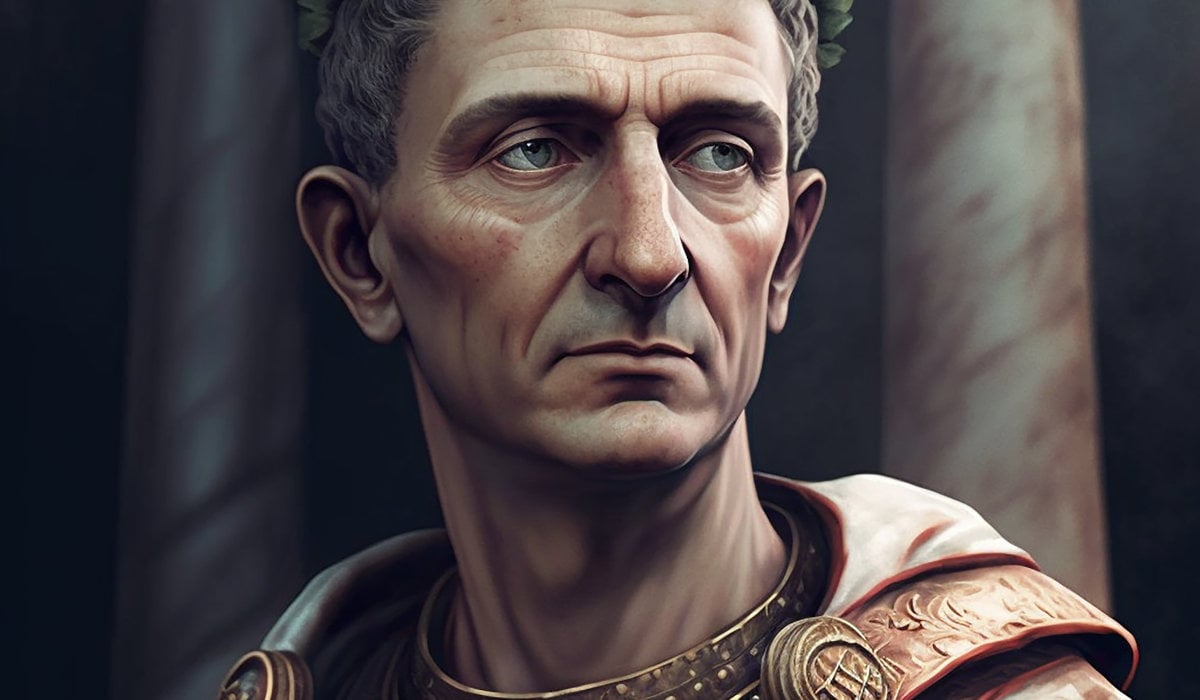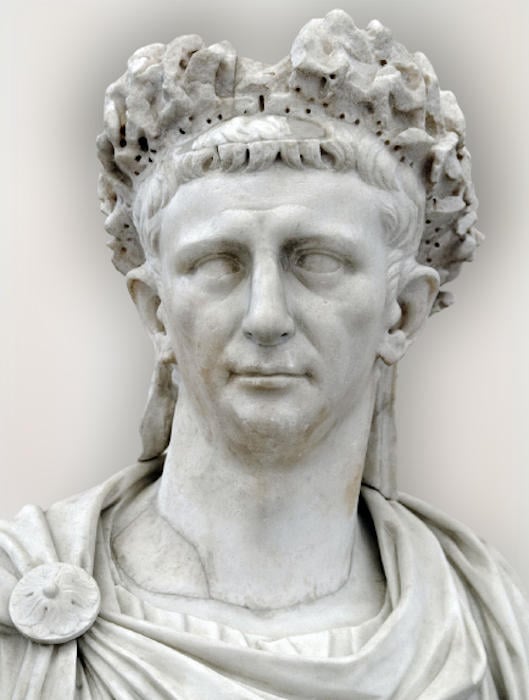
Educating Claudius: Transforming the Family Outcast into the Emperor of Rome
When the mad Roman Emperor Caligula was assassinated in 41 AD, his uncle Claudius ran to one of the palace's apartments and hid behind a curtain. Claudius was soon discovered by the praetorian guards and escorted to their camp, where he was introduced to the troops who proclaimed him emperor.
Despite being the youngest son of Nero Drusus (brother of Emperor Tiberius) and Antonia the younger (daughter of Mark Antony and Emperor Augustus’ sister Octavia), Claudius was never a front-runner to be the Roman Emperor. Deemed an embarrassment at court due to his poor health and alarming lack of social skills, it was only when Caligula came to power that he was eventually offered a consulship as a colleague to the emperor himself only to be treated horribly by the young emperor and suffer public scorn at court.
Despite his image as the slow-witted member of the imperial family, Claudius' initial moves in office were thoughtful and decisive. Though he sentenced Caligula’s assassins to death, he did not launch further investigations on the matter. Instead, he eliminated treason trials, burned criminal records, and destroyed Caligula's fabled stockpile of poison.

A bust of Emperor Claudius. (Michael Cambridge / CC BY-SA 4.0)
Claudius also puts an end to any rebellions against him before they begin. Early in his reign, it was discovered that the instigators of a revolt had connections to Rome's most powerful aristocrats. The new emperor's horror at how near such conspirators have prompted him to impose strict security measures which helped to prevent any of the six or more conspiracies against him throughout his twelve-year rule. Disgrace to his family though he was, Claudius has survived longer than most of his relatives.
Educating the First Emperor of Rome
Octavian, the future Emperor Augustus, was four years old when his father died. This father, an equestrian by birth, was the first in his family to enter the senate. At the time of his death, he was returning to Rome to sue for the consulship after serving as governor of Macedonia. His wife, Atia, was the daughter of Julia Minor, elder sister of Julius Caesar. According to Tacitus, Atia provided her son with a home education under direct personal supervision, as was customary throughout the Roman Republic. His grandmother Julia likely helped raise the future emperor.
Julia’s funeral oration was likely the first time Octavian came to the public's attention. The future emperor obtained a thorough education in accordance with Ciceronian ideals, thanks in part to his great-uncle Julius Caesar. Caesar had high aspirations for Octavian and educated him in all the arts required of a ruler, including Greek and Latin oratory, politics, government, and military strategy.
Although Octavian assumed the toga virilis at the age of fifteen, illness prevented him from participating as actively in Caesar's military campaigns as he would have desired. When Caesar visited Rome in 46 BC, Octavian was frequently seen with his great-uncle at theatres, banquets, and other public gatherings. These outings exposed him to the leading Romans of the day. Even at this time, Octavian was bound by strict rules and regular hours. He was not allowed to mix with bad-tempered young men, stay at banquets after dusk, and dine before the tenth hour unless at the homes of Caesar, Philippus, or Marcellus, his brother-in-law.
Among young Octavian’s teachers were two rhetoric professors, Marcus Epidius and Apollodorus of Pergamum, the former a Latin rhetor and the latter a Greek scholar. Epidius evidently taught in Rome, as Mark Antony was among his students. A brief biography of Vergil recorded in the Berne manuscript also indicates that Vergil and Octavian studied together - since Vergil came to Rome and began the study of rhetoric somewhat late in life, it is likely that the biography is correct, notwithstanding the age difference between the two.




